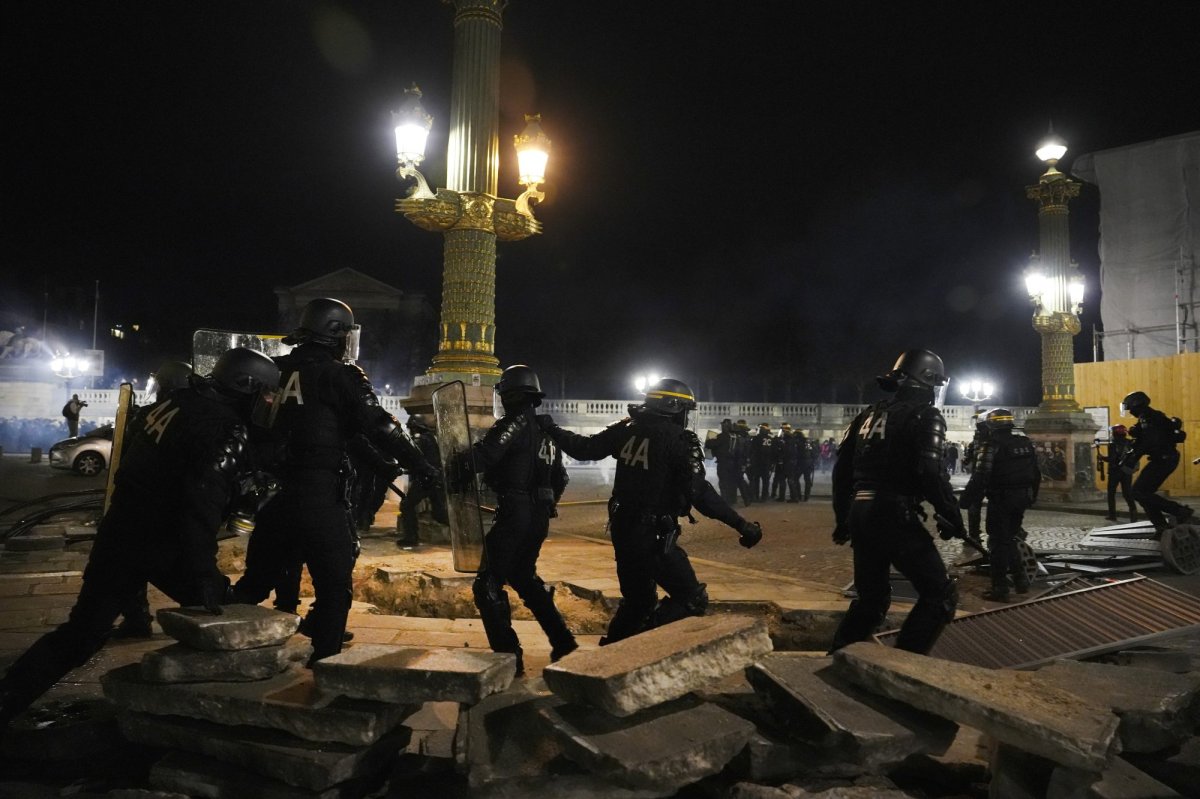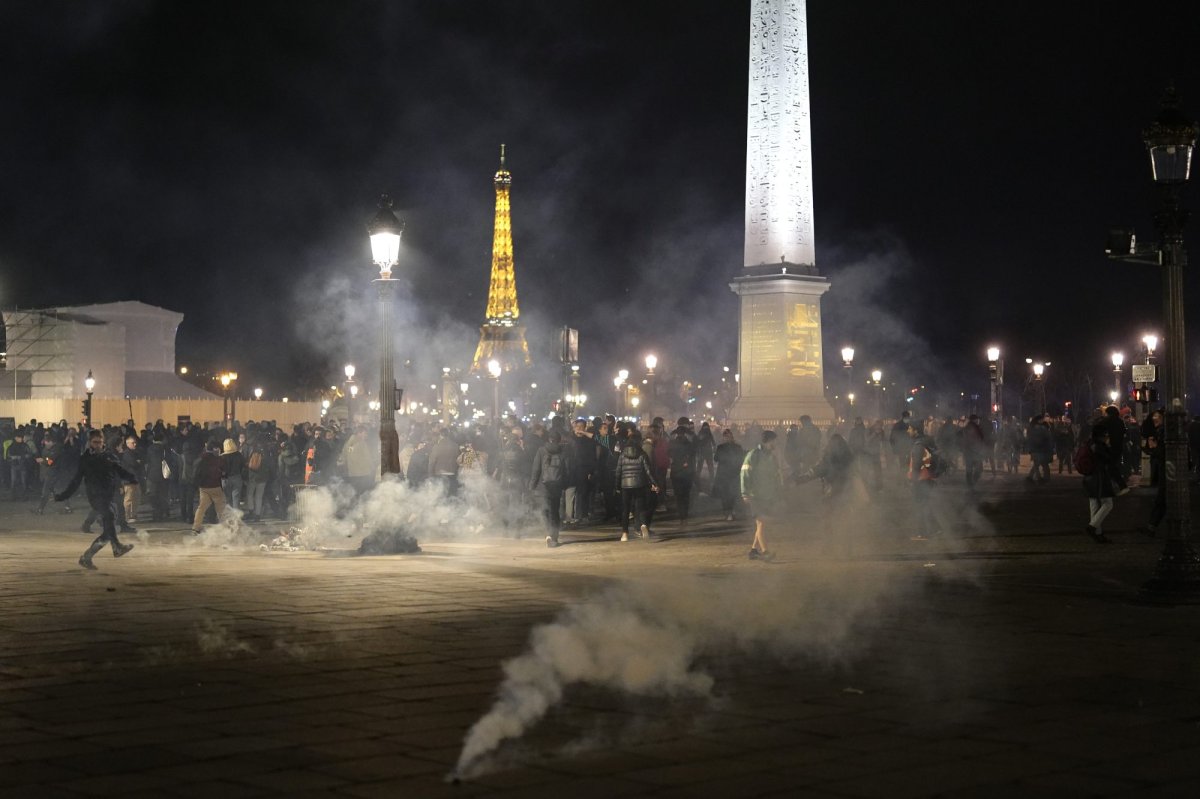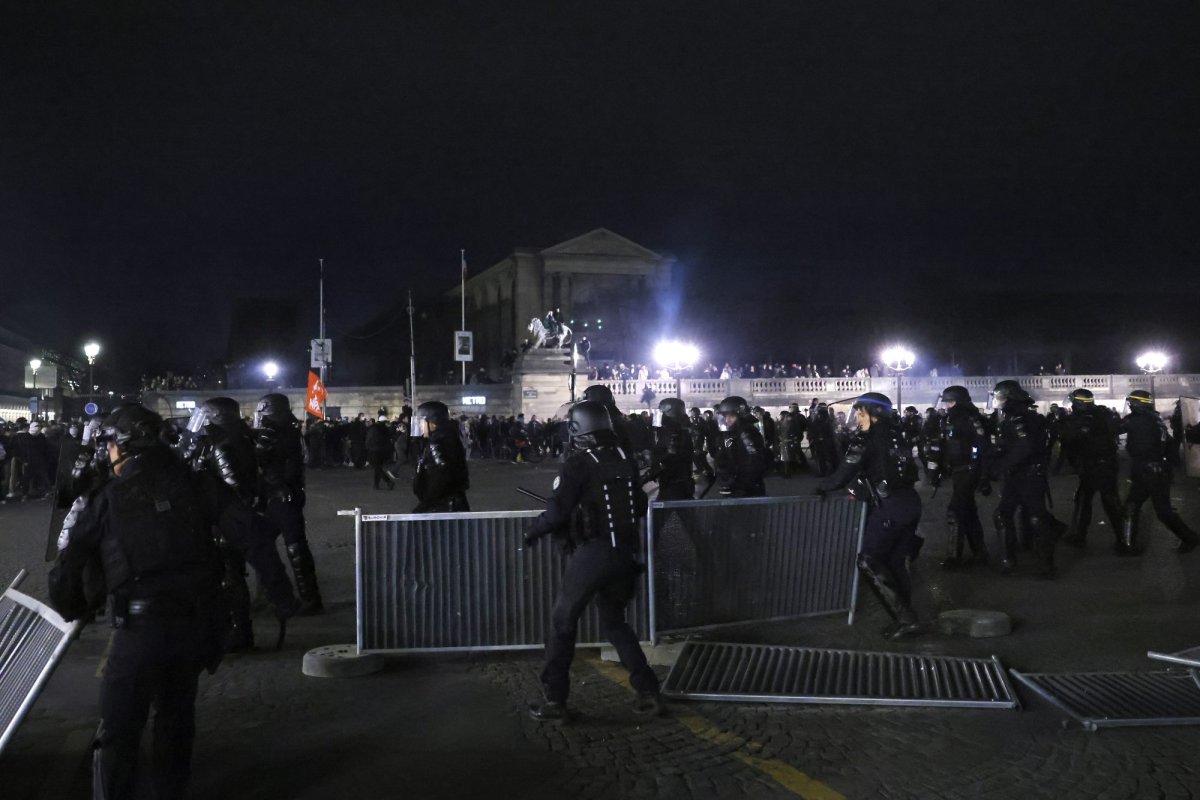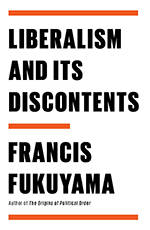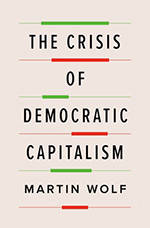After recent Supreme Court wins, the society’s youth arm debates the next stage for the conservative legal movement.

Despite accusations from liberals that the Federalist Society is merely the eggheaded puppet of the Republican Party, many of the society’s members genuinely view themselves as independent-minded intellectuals. | POLITICO illustration/Photos by iStock
By IAN WARD
03/17/2023
Ian Ward is a contributing writer for POLITICO Magazine.
AUSTIN, Texas — The Texas sun was just beginning to rise over central Austin as groups of neatly-dressed law students arrived at the AT&T Hotel and Conference Center, a beige monolith plopped on the southwestern corner of the University of Texas’s sprawling campus. Once inside the lobby, the students ascended two flights of stairs, crossed a courtyard, descended two more flights of stairs and rode two escalators down to a subterranean ballroom, where members of one of the most maligned organizations in American politics were gathering for breakfast.
It was the start of the second day of the Federalist Society’s National Student Symposium — an annual gathering of conservative and libertarian law students hosted by the conservative legal behemoth — and as I sidled up to one group of attendees, I got the sense that they were caught off guard to find a reporter in their midst.
“People think we’re some sort of shadowy cabal, but all we really do is invite speakers to campus and then go to Chipotle for tacos,” one of the attendees, a first-year law student from Georgetown University, assured me as we drank coffee and picked at mini croissants. “Or least, that’s all I’ve seen of FedSoc so far.”
And to be fair, the symposium — which is part academic conference, part high-powered networking event, and part extended cocktail party — was hardly shrouded in mystery. At a reception the night before, gaggles of fresh-faced law students had sipped frozen margaritas and piled their plates with barbecue from a nearby buffet. Many of the students accessorized their suits and cocktail dresses with cowboy boots and Stetsons. Peals of laughter rippled around the room. It was the type of event where you’d expect everyone to slink back to the hotel afterward to get drunk and hook up, except that most of the students I talked to were either married or engaged. A few of the young attendees had brought their infant children along with them.
But the event, which took place the first weekend in March, wasn’t merely a multi-day schmooze-and-booze fest, either. Built around a series of panel discussions with prominent legal scholars, lawyers, and federal judges, the annual gathering offers up-and-coming conservative lawyers a prized opportunity to rub elbows with the leading lights of the conservative legal movement — and, as an added benefit, to meet face-to-face with potential future employers. This year’s symposium wasn’t lacking in political star power, either, with Texas’ Republican Gov. Greg Abbott slated to give a keynote address to cap off the programming on Saturday evening.
“The people I met at student conferences a decade ago are now sitting federal judges,” said Josh Blackman, a professor at the Southern Texas College of Law and a fixture of the Federalist Society speaking circuit. “The people you meet here and the networks you build up over years — they’re very, very important.”
“The people I met at student conferences a decade ago are now sitting federal judges.”Josh Blackman, professor, Southern Texas College of Law
This year’s gathering was even more important than most. As the first student symposium since the Supreme Court handed conservatives a historic package of victories on gun rights, religious freedom, environmental deregulation, and, of course, abortion, the weekend offered a window into the shifting priorities and preoccupations of the youngest and most elite members of the conservative legal movement, at a time when the future of the movement as a whole is quietly unsettled.
The first major clue about those preoccupations came from the symposium’s theme, which the organizers had designated as “Law and Democracy.” As the programming unfolded over the next day and a half, it became alarmingly clear that, even among the buttoned-up young members of the Federalist Society — an organization not known for its political transgressiveness — the relationship between those two principles is far from settled. From radical new theories about election law to outlandish-seeming calls for a “national divorce” the symposium-goers were grappling with ideas that raised fundamental questions about American democracy — what it means, what it entails, and what, if anything, the conservative legal movement has to say about its apparent decline.
‘That Ship Has Sailed’
As the symposium kicked off in Austin, another group of conservatives was gathering halfway across the country in the suburbs of Washington, D.C. where the annual Conservative Political Action Conference was getting underway. The reports coming out of CPAC were worrisome for establishment conservatives: Before a visibly thinned-out audience, the MAGA faithful dutifully leaned heavily into culture war tropes and parroting Donald Trump’s baseless claims about fraud in the 2020 election.
In Austin, meanwhile, there were no red, white and blue sequined blazers — or at least none that I saw — and Donald Trump’s name went almost entirely unspoken, except for the occasional mention in hushed tones.
“I don’t know where I’d be if Trump hadn’t won,” I overheard one Federalist Society staffer confide to a colleague as we milled around the foyer outside the main ballroom, apparently referring to the 2016 election. “Probably working some corporate job that I’d hate.”
The symposium, however, mirrored CPAC’s ambivalent assessment of the future of American democracy — even if that ambivalence was expressed in slightly more elevated terms.
To those who have followed the Federalist Society closely since its triumphs at the Supreme Court last year, the symposium’s focus on law and democracy may hardly seem incidental. Since its founding in 1982, the Federalist Society has championed “judicial restraint,” the notion that judges should limit their roles to interpreting the law as written, leaving the actual business of lawmaking to democratically elected legislatures.

During the first weekend of March, 2023, the Federalist Society’s National Student Symposium gathered at the University of Texas at Austin School of Law for the first time since the Supreme Court handed conservatives a historic package of victories. | Ian Ward/POLITICO
That approach made sense for conservatives when they still saw the federal judiciary as a liberal force dragging the country to the left. But now that conservatives have secured a solid majority on the Supreme Court — and voters in several red states have soundly rejected hard-line positions on abortion — a spirited debate is underway within the Federalist Society about the wisdom of deferring to democratic majorities as a matter of principle.
“From our very beginning, there has been an aspect of judicial restraint, and there has been an aspect that it’s judges’ jobs to interpret the Constitution, that whatever it says, that’s what they should do — and those two can sometimes be in tension,” said Eugene Meyer, the president and CEO of the Federalist Society, as we spoke in a back hallway of the conference center.
I had only convinced Meyer to talk with me after assuring him and his handler that I wasn’t trying to back him into answering specific questions about cases currently before the Court. At Meyer’s urging, the society goes to great lengths to emphasize that it does not take policy positions or weigh in on the merit of individual cases, preferring to present itself as a neutral “debate society” for right-leaning intellectuals. But Meyer — who tapped his foot nervously as we spoke — was willing to admit that the intellectual winds within the organization are shifting.
“I think it would be fair to say there’s been some movement over time more in the direction of interpreting the Constitution and less in the direction of pure judicial restraint.”Eugene Meyer, president and CEO, Federalist Society
“I think it would be fair to say there’s been some movement over time more in the direction of interpreting the Constitution and less in the direction of pure judicial restraint,” he told me.
When I spoke with Blackman, the Southern Texas law professor, he noted that that tension was neatly captured in two of the headline-making decisions that went conservatives’ way in the last Supreme Court term. In the Dobbs ruling, the conservative majority returned the abortion question to state legislatures, limiting federal judges’ role in determining the extent of reproductive rights. Meanwhile, in New York State Rifle & Pistol Association, Inc. v. Bruen — which struck down a New York law that set the requirements for individuals to receive a concealed carry permit for handguns — the Court trumped the decision of a state legislature in favor of conservatives’ preferred reading of the Second Amendment.
But Blackman’s assessment of the direction of the intellectual current within the Federalist Society was even more candid than Meyer’s.
“The norm that judges be restrained and moderate — that ship has sailed,” he said.
Inside the cavernous ballroom, panelists took turns delivering their remarks from a raised platform, flanked on one side by the American flag and by Texas’s Lone Star Flag on the other. The symposium is hosted by a different law school every year, but there was a tidy irony to the fact that this year’s gathering landed in Texas, which has in recent years seen an influx of conservative transplants seeking refuge from what they see as the insanity and insipient authoritarianism of Blue America.
“Democracy is what philosophers call an ‘essentially contested concept,’” said Daniel Lowenstein, a professor of law emeritus at UCLA and an expert in election law, during a panel on Friday evening. “Differences that seem on their surface to concern the meaning of the word ‘democracy’,” he added, are actually struggles to advance particular and controversial political ideas.”
What democracy does not mean, Lowenstein argued, was “plebiscitary democracy,” or simple rule by democratic majorities. Citing the Federalist Papers — the namesake of the Federalist Society — Lowenstein suggested that governance based on simple mathematical majorities would enable “tyrannical domination of the minority by the majority.”
“The assumption that only plebiscitary forms [of government] are truly democratic is fallacious, and should be openly and directly contested by those supporting non-plebiscitary positions,” he added.
Behind me, somebody whispered, “We’re a republic, not a democracy” — a tongue-in-cheek slogan that some conservatives have adopted as a way to slyly signal their approval of minority rule.

Later on in the same panel, Joel Alicea, a law professor at the Catholic University of America, diagnosed the apparent threats facing American democracy today — political violence, abuses of governmental power, and attempted election subversion, to name a few — as symptoms of a deeper malaise.
“At this point in our society, we can’t even agree whether somebody is a man or a woman, which suggests such a deep level of moral disagreement — and even disagreement about basic notions of reality — that to say that society can form an overlapping consensus is hopelessly naive,” he said. Faced with such fundamental disagreements, Alicea said that citizens have to choose between two approaches: coercion, suppressing disagreements by means of force and intimidation, or conversion, the slow and steady work of persuading people who disagree with you to come around to your point of view.
Alicea advised the attendees to embrace conversion rather than coercion, but in the question-and-answer session after the panel, an audience member proposed a third option: a full-scale national divorce, of the sort recently proposed by Republican Rep. Marjorie Taylor Greene of Georgia.

This year’s gathering landed in Texas, which has in recent years seen an influx of conservative transplants seeking refuge from what they see as the insanity and insipient authoritarianism of Blue America. | Ian Ward/POLITICO
On the dais, the panelists squirmed at the invocation of such pedestrian political ideas, and Alicea offered some high-level philosophical objections to the idea that America should fracture into independent ideological entities. But the question seemed to linger in the room: If the disagreements over democratic first principles are as serious as Alicea had suggested, then was the idea of a wholesale political rupture really so radical?
The possibility of dramatic changes to America’s democratic order also hung over a panel on election law, where Richard Pildes, a professor of constitutional law at New York University, briefed the audience on Moore v. Harper, a case that is currently awaiting judgment from the Supreme Court. The case, which arose from a challenge to North Carolina’s redistricting plan, is widely viewed by legal scholars as a referendum on the controversial independent state legislature theory, which posits that state legislatures should be allowed to exert broad control over the execution of federal elections.
From the stage, Pildes — who testified about the dangers of the theory before the House last year — seemed confident that the justices were not poised to endorse the theory in its most radical form. But even as the several panelists acknowledged the disruptive nature of the theory, none of them seemed eager to acknowledge that the four members of the Court who have flirted with the idea — Clarence Thomas, Samuel Alito, Neil Gorsuch and Brett Kavanaugh — all maintain close ties to the Federalist Society.
That omission hinted at a deeper dilemma facing the Federalist Society. Despite accusations from liberals that the society is merely the eggheaded puppet of the Republican Party, many of the society’s members genuinely view themselves as independent-minded intellectuals, committed to the principles of individual freedom, judicial restraint and the rule of law. For the past two decades, the society’s members have pointed to those principles to justify the conservative movement’s efforts to weaken democratic norms and institutions, without having to go so far as to explicitly argue that a minority of Americans should be allowed to impose their will on the whole country.
But now, as the American right lurches toward a more explicitly anti-democratic position, the society’s members are face to face with a troubling possibility: that most conservatives couldn’t care less about their high-minded principles, and, even worse, that many of their allies view their attachment to those principles as a quaint — and slightly embarrassing — relic of the bygone era when conservatives still had to be coy about what they actually believed. And whether or not those criticisms are true, there was a definite sense of cognitive dissonance at the conference, where many of the panelists appeared willing to endorse the logic of anti-democratic arguments but shied away from those arguments’ more radical conclusions.
The next morning at breakfast, I met a law student from the University of Tulsa named James Carroll — who was, like me, one of the few male attendees not wearing a suit and tie. He told me he had grown up in Arizona before moving to Tulsa for law school, where he had fallen in love with Oklahoma, married his long-time girlfriend, and set down roots. He had recently accepted a job at the Tulsa County District Attorney’s office, where he had worked as an intern in law school.
As we got talking, he described a vision of democracy that I hadn’t heard much of from the panelists the day before — democracy as something immediate, something pragmatic, something that people interact with in their daily lives and not just in philosophy textbooks.
“On the national level, democracy’s just a construct, but on the local level, it’s not a construct at all,” he said.
I asked him what a functioning local democracy meant to him.
“Keeping your community safe, keeping murderers off the street, making sure people who need mental health support can get connected with those services,” he answered. He said his favorite part of his internship in the D.A.’s office during law school had been helping people who were struggling with mental health problems, and that his work on that issue had been part of what led him to join the office after graduation.
“Democracy,” he said, “works best on a small scale, in your community.”
‘Maybe We Need More Shitposters’
The Federalist Society was founded by law students, and advancing the careers of ambitious, right-leaning lawyers has remained a major element of its work. That work begins on law school campuses, where local chapters host speakers and events, and it extends all the way to Washington, where the Federalist Society has become the GOP’s go-to clearinghouse for major judicial appointments. Although much of the national media attention has focused on the organization’s role in supporting Republican Supreme Court nominations, its presence on law school campuses has also been a source of controversy, especially since the Dobbs decision. Just last week, a Federalist Society event at Stanford Law School made national headlines after protesters heckled U.S. Circuit Judge Stuart Kyle Duncan, a Trump appointee to the Fifth Circuit, causing him to cut his remarks short.
In recent years, however, the Federalist Society has come under fire not only from its traditional opponents on the left, but also from some erstwhile allies on the right. According to these conservative critics, the Federalist Society has excelled at training monkish young lawyers to fill the ranks of the federal judiciary, but it has been less successful at inspiring those same professionals to eschew prestigious clerkships and partner-track jobs in favor of manning the front lines of an all-out war on the American political establishment.
Or as Theo Wold, a former Trump administration official who now works for Idaho’s attorney general, recently put it during an interview on the American Moment podcast, which is popular with young conservatives, “Maybe [conservatives] don’t need any more well-credential lawyers. Maybe we need more shitposters from Twitter.”

In recent years, the Federalist Society has come under fire not only from its traditional opponents on the left, but also from some erstwhile allies on the right. | Ian Ward/POLITICO
At the student symposium, none of the panels focused explicitly on shitposting — one breakout session provided an introduction to the Federalist Society’s lawyers division, and another offered advice on “becoming an academic” — but there was a palpable sense that many young attendees were hungering for some juicer political red meat.
“I think the students wanted it to be fierier than it was,” Carroll said, reflecting on the first panel.
That hunger is partly a function of the iconoclastic energies that Trump introduced into the American right, and partly a function of generational divides within the conservative legal movement itself.
“I think the older generations had been beaten so many times that they felt sort of defeated,” Blackman, who is in his thirties, told me. “They lost Roe, they lost Casey and they weren’t so eager to overrule those decisions, so it was largely the younger generation — who didn’t have those sort of battle scars — who were pushing hard for the court to overrule Dobbs.”
The students at the conference did get a taste of face-to-face conflict on Saturday evening, when a group of about 30 law students from a liberal student group at UT showed up outside the conference center to protest Greg Abbott’s speech. As the protesters waved hand-drawn signs and chanted “Get that sexist out of Texas!”, a small group of conference attendees gathered inside the hotel lobby to take jeering selfies with the protesters through the glass double doors.
“I mean, I do support the First Amendment,” I overheard one conference-goer say, clearly relishing the opportunity to own the libs.
Back in the ballroom, Abbott leaned into the conservative culture war rhetoric, telling the audience that he was on “a recruiting mission” to enlist young conservative lawyers in the fight against “the social justice warriors and the anti-constitutionalists” who are seeking to subvert the rule of law and undermine America’s constitutional order.
“Those who believe in the rule of law are outnumbered…but I believe we are still winning, because we are on the side of the righteousness,” Abbott thundered. It wasn’t entirely clear what he meant by “winning,” but the audience didn’t seem to mind. They offered up another round of thunderous applause.
Abbott’s speech went on in more or less the same fashion for the next half-hour, bouncing between punchy anecdotes from his legal career and perfunctory exhortations to defend the country from tyrannical social justice warriors. The audience applauded and laughed through mouths of salad and dinner rolls, and the whole room leapt to its feet as Abbott’s remarks drew to a close.
As the ovation died down, I left the hall for the foyer, where a team of hotel staff was clearing cocktail tables and emptying garbage cans. On one side of the room, a group of women in evening gowns took pictures in front of a FedSoc-branded backdrop. At the other, a group of men gathered around a table for a drink.
As I made my way to the bar, the men raised their glasses for a toast.
“To America,” said one of them.
“To America,” said the others.


.png)










